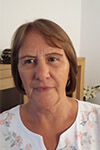Research from the Elizabeth Bryan Multiple Births Centre has contributed to national guidance, improving outcomes for the estimated 95,000 babies admitted to neonatal units in the UK. Research from the centre has also led to improved care for complex and multiple births in NHS Trusts across the UK.
Research summary
Multiple birth pregnancies often come with a greater risk of delivery complications, requiring different considerations compared to single births.
More than half of pregnancies that involve multiple foetuses result in an early (preterm) birth and these pregnancies also have a higher chance of requiring an invasive caesarean section.
With this in mind, Elizabeth Bryan Multiple Birth Centre researchers conducted several projects on:
- The information and support needs of parents of babies born preterm
- Improving caesarean section care and reducing infection, and;
- Skills, training and development needs of healthcare providers who support multiple birth families.
Research background – working with parents to highlight their needs
Professor Merryl Harvey’s work explored the experiences of parents with babies born preterm and in neonatal care. The study revealed that, in many cases, parents reported that they were not given enough information about the care plan for their babies. Dr Carolyn Blackburn’s and Harvey’s study highlighted the lack of support available for parents of preterm infants from health and educational professionals.
Caesarean section, can sometimes lead to infections that impede recovery and lead to sepsis (a cause of maternal death). Dr Annalise Weckesser’s research highlighted the need for improved information and care pathways for women to better prevent and identify infections. It also evidenced how caesarean section stigma, and women’s feelings of guilt for needing the procedure, negatively affected their recovery experiences.
Professor Harvey and Professor Emeritus Elaine Denny’s study explored the needs of multiple birth families. They found a need for better training for health visitors as well as the need for an evidence base to improve health visitor practice when supporting multiple birth families.
Outcomes and impact – enhancing national guidance to improve care
Collectively, the work of the Elizabeth Bryan Multiple Birth’s centre has led to better care for complex births and for multiple birth families.
Prof Harvey’s research informed the first NICE Guidance on the follow up care for children and young people born preterm. The guidance draws extensively on Harvey’s research to recommend health practitioners provide parents with more information about the care of preterm infants, equipping them with the information they need to help their children make the best start in life.
The NICE guidance sets out a framework for consistent high-quality follow-up care for the estimated 95,000 babies born preterm every year in the UK.
Dr Weckesser’s research on women’s experiences of recovery after a c-section informed an initiative at Birmingham Women and Children’s Hospital (BWC) to reduce infections in obstetrics. Findings about the information needs of women informed an Infection Prevention Bundle to help prevent post-op infections. The initiative led to a ten percent decrease in surgical site infections post c-section at BWC, a hospital that attracts high risk pregnancies and carries out thousands of such procedures per year.
Dr Weckesser featured in a BBC educational video, ‘C-Section Guilt: I felt like I’d failed’, to share these findings. The video has received over 1,761,400 views internationally, contributing to vital conversations about addressing c-section stigma and guilt.
Research from the centre has also led to the development of a CPD course aimed at training health practitioners on improving care for multiple birth families. As a result of the module, an East and North Hertfordshire Trust (ENHT) Midwife created a continuous support pathway for women experiencing a multiple pregnancy within her Trust, for which she won the Chief Midwifery Officer Silver Award (2020). She said: “The research informed module has been significant in the success in improving our understanding of the unique support required by families of multiples, and has helped to shape and inform how we deliver our provision for these families.”



